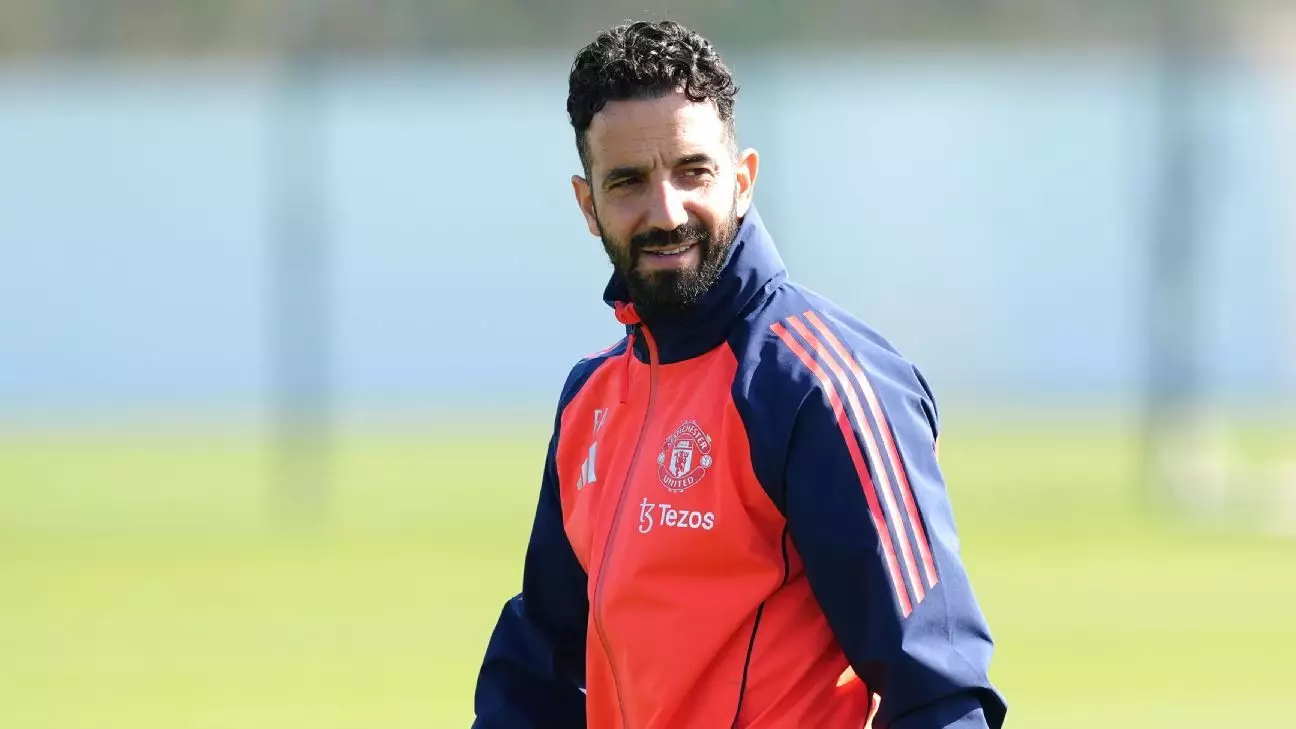In recent statements, Manchester United’s manager Ruben Amorim has illuminated a striking disparity between his team’s performance in the Europa League and the Premier League. Since taking the helm in November, Amorim has guided United to an impressive five wins and a single draw in their six Europa League fixtures. This stands in stark contrast to a disheartening record of merely six victories from twenty matches in England’s top division. Amorim’s observations draw attention to an intriguing issue—how the physicality and rapid pace of the Premier League can inhibit teams that thrive in a more deliberate environment.
Physicality as a Double-Edged Sword
The seasoned coach argues that the frantic tempo of the Premier League has proven detrimental to his players, who could find a more favorable rhythm in the relative leisure of European play. The speed and intensity of domestic matches demand rapid decision-making and relentless stamina, traits that seem to confound his squad. Amorim stresses that the extra second available during Europa League matches allows for more strategic thinking and an opportunity to execute plays with greater precision. This dichotomy raises questions not just of tactical approach but of how player profiles align with different styles of play.
Looking Forward: Europa League as a Lifeline
As Manchester United finds itself mired in the lower tiers of the Premier League table, the Europa League emerges as a beacon of hope amid a season that many would describe as calamitous. Amorim underscores the importance of clinching a European title, not just to salvage the current campaign but as a critical stepping stone toward reestablishing the club’s stature. Winning in Europe could catalyze a shift in confidence and provide the momentum necessary for a resurgent return to the Champions League—an aspiration that intertwines with budgeting and future recruitment strategies.
Strategic Reinforcements
Amorim’s strategy has also pivoted around the personnel at his disposal. The return of Kobbie Mainoo, following a lengthy injury layoff, signals good news for the squad. The emergence of young talents such as Mainoo could perhaps serve as catalysts in reshaping United’s narrative for the remainder of the season. Additionally, the coach’s decision to integrate Luke Shaw, albeit cautiously, signifies a tactical flexibly that may be crucial for upcoming fixtures. However, the absence of key player Matthijs de Ligt, due to injury, continues to loom as a barrier that needs addressing if United hopes to find stability and flourish in both domestic and continental arenas.
Amorim’s Vision for the Future
While many may regard Amorim’s candid analysis as a mere excuse for underperformance in the Premier League, his insights speak to a broader understanding of football dynamics. The juxtaposition of European and domestic play is more than just a statistical analysis; it reflects the need for teams to find their unique balance between physicality and tactical execution. As United progresses deeper into the Europa League, Amorim’s emphasis on adapting to the slower pace may not only shape their tactics but also establish an identity for a team that desperately seeks coherence and success. Through this lens, the upcoming quarterfinal against Lyon becomes a critical junction—not only for a trophy but also for reclaiming lost confidence.

Leave a Reply